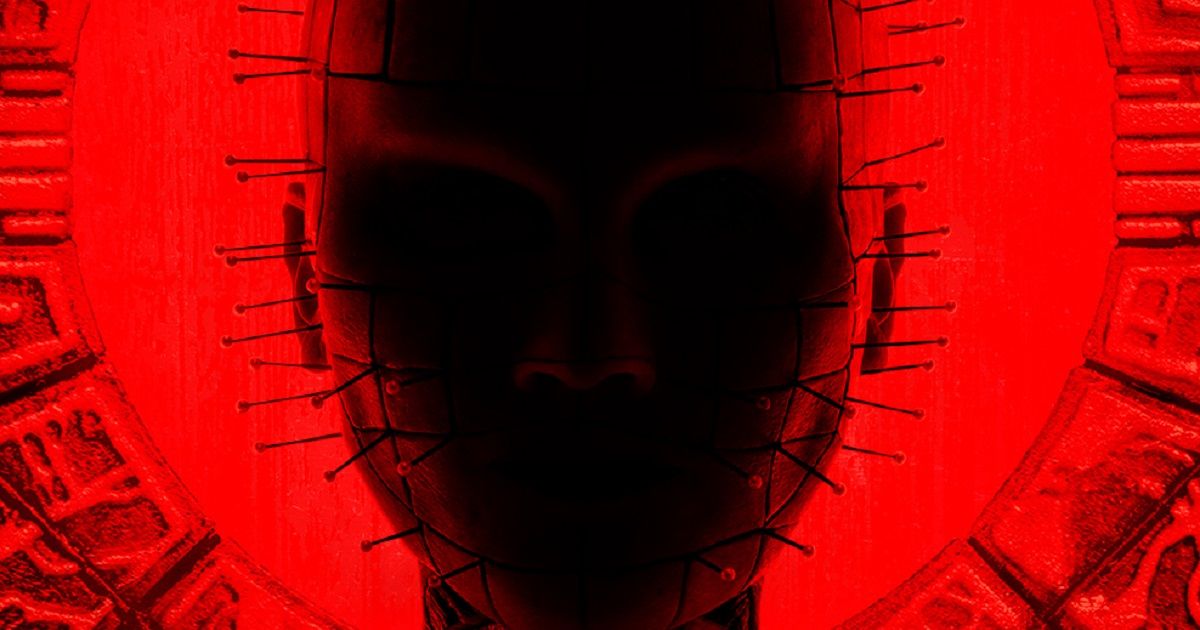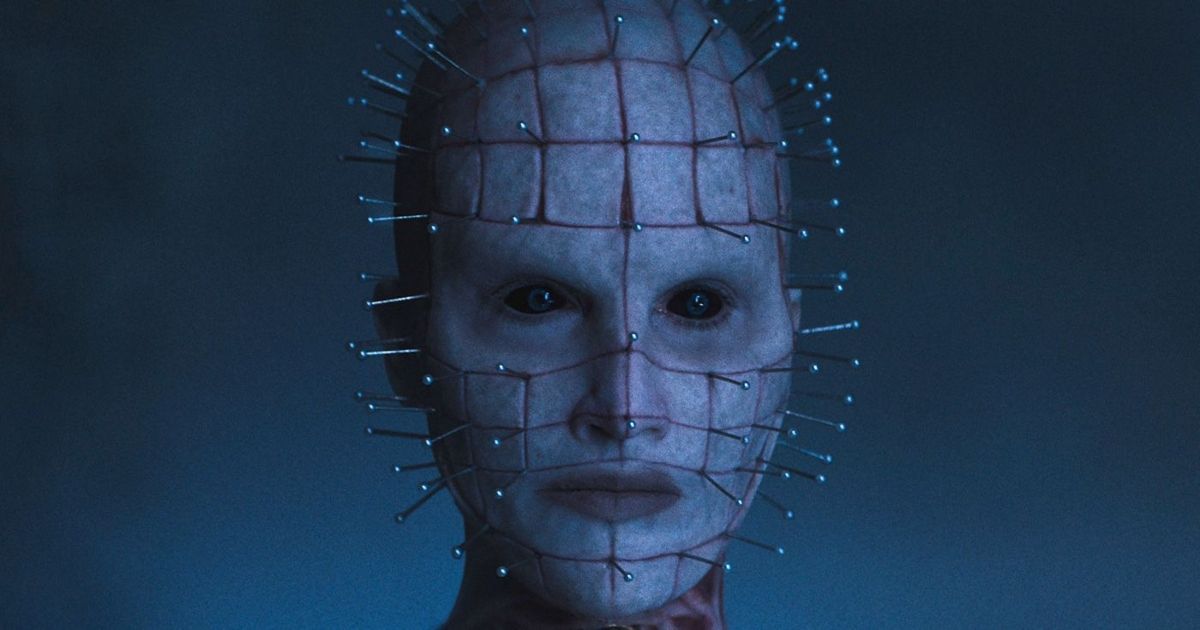Hulu’s Hellraiser (2022), a reimaging of Clive Barker’s horror classic from director David Bruckner, has hit the streaming site. In an interview with Bloody Disgusting, both Barker and Brucker sat down to discuss this latest installment in the series. Barker said the two of them had great conversations that weren’t even meetings because they were fun. As Bruckner said:
“Yeah, absolutely. It was a regular rhythm for us. So, throughout the prep process when I was putting the movie together, Clive and I would find moments to talk. Sometimes we’d reach out of the blue, sometimes, he would call, or I would call, or one of us would have an idea. And so, there was this just really awesome creative conversation during the prep process."
According to Barker, there was respect in both directions, which made their working relationship easier. Barker was also very encouraging about how this was a new group of artists and that this would be their movie. Bruckner said that all of his creative input was in the spirit of helping them find the film and being true to where it was heading and what it would become. Barker said:
“Ah! I did it right! Absolutely. I thank you for saying that too, David. I appreciate it. I think it’s important, particularly when you’re up to number 11 in the series, it’s important that you don’t do a Bob Weinstein on it. Which is meaning to say, ‘how soon can I have this?’”
According to Barker, Weinstein owed him money and it was around the seventh installment, Hellraiser: Deader (2005), that he finally went to his office. Weinstein said he would pay the money if Barker wrote a script for him first. It was a very transactional meeting. At this point, it was clear that there wasn’t any interest in his ideas. That made it refreshing to interact with a cast and crew with a vision for this new movie.
“I boarded the first Hellraiser completely for myself, but I didn’t give the boards- except in the big special effects sequences- I didn’t give the boards to anybody. I was going out to the set of the first Hellraiser movie without having ever been on a movie set before. On the first day of principal photography, I’m a total neophyte; I have no idea how to do this except in the sense that I had theater in my blood, and I’d done a lot of direction of the theater.”
Barker found the most demanding areas were dealing with each actor because they’re “the heart and soul of cinema.” They needed to be there for the cameras to turn on unless you were doing a nature documentary. Barker said that Bruckner got the casting perfectly right on this vision while he was fortunate in how most of the people who worked on the first Hellraiser movies were his friends and the right people for the job. Bruckner also talked about directing the new film.
Directing And Other Parts of the Movie
“Not to compare our process because obviously what Clive has done is absolutely historic; that first film really is a masterpiece to me. We’ve talked about it many times, and I think, for me, it is a visual journey, first and foremost. It’s a lot of ideas that often get sketched down in various ways, and some of them you hang onto. Then some of them mutate when you get out into the world of filmmaking because you really have to improvise with resources and circumstances and the realities of production. And where talent is concerned, once they dig into the role, they bring something to it that is, the essence of what you’re working on is going to change, once someone adds words."
Barker said that everything changes once an actor says their lines. The only solid thing he knew was the plotting part. When Barker asked if Hellraiser (2022) says everything he wanted it to say, Bruckner said that it’s different for him every time he watches it, but no, he doesn’t know if it solidifies. For him, it’s a moving target, and it’s not until he’s with the audience that he fully understands what’s landing and what’s coming across.
“I mean, quite literally, I often am only reminded of what we set out to do when you see it with a crowd, and you hear them reacting to the material, and that’s when you go, ‘Wow, this is scary.’ Or there is magic there, or suspense, or the meaning in this beat can resonate because you can feel it in the room. But I have a hard time experiencing it on my own. I need to be in the presence of other people. I need to feel the projection of their experience to see it.”
One of the things that both Bruckner and Barker agreed on when it came to this new version of Pinhead was that having a new actor replicate Doug Bradley’s performance was never going to work. That was something that Jamie Clayton understood as well. Even before they agreed to go forth, there were several Zoom calls with Clayton where she would have her own experience with the lines. Barker said:
“I think that Doug’s is person specific. Doug’s Pinhead is person specific. Jamie is the deadly seductress, or seducer, whichever gender you want. There’s something very sly about Jamie, or Jamie’s performance. Doug is not sly. Doug is utterly direct, and that’s what makes him intimidating. His statements are questions and there’s never any ambiguity in the original Pinhead. What you two had brought to our new Hell Priest is ambiguity. I love that, and I hope Jamie will recreate this role again. Because it seems to me that there’s so much more to be done with her performance than the script allows her to do this time around after all."
Pinhead, or the equivalent thereof, first debuted with the other Cenobites in 1986 with The Hellbound Heart, then a year later with Hellraiser on the big screen. Even thirty-five or thirty-six years later, the Cenobites continue to fascinate audiences. For Bruckner, the reason for that was how he didn’t know what they wanted or if they had a design on you, the Cenobites would take you somewhere you couldn’t possibly imagine—whether it’s a fate worse than death or better. Bruckner said:
“But I find that they are more advanced than I am and have a taste, a flavor for something that is beyond me. There’s just intrigue built into that naturally. It’s scary at first, but then the more time you spend with them, the more you get lost in the possibilities there. You begin to identify with them in strange ways. You become obsessed with the mythology behind them. That’s always been a key point of intrigue."


